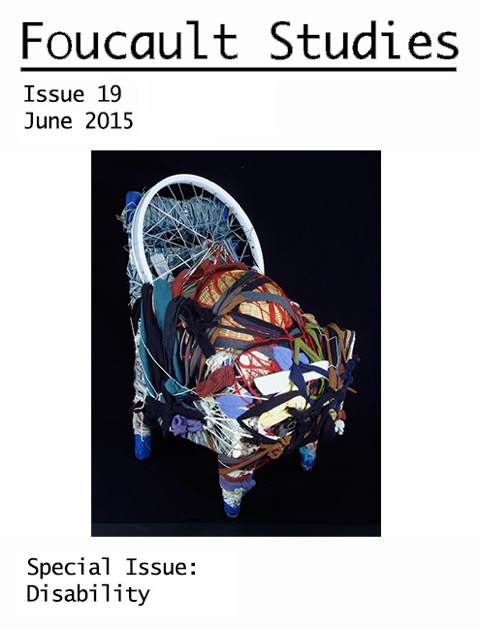Desiring Disability Differently: Neoliberalism, Heterotopic Imagination and Intra-corporeal Reconfigurations
DOI:
https://doi.org/10.22439/fs.v0i19.4824Keywords:
disability, heterotopic imagination, neoliberalism, intracorporeality, agential realismAbstract
Challenging the undesirability of disability is a shared responsibility that requires us to imagine disability differently. In order to imagine disability differently, we need to understand how the neoliberal hegemonic social imagination—key to processes that create good disabled and able-bodied neoliberal subjects—works to curtail who is perceived to have a desirable body. In order to desire disability differently, we must begin with marginal, heterotopic imaginations whereby disability is not something to overcome, but rather is part of a life worth living. In this article, I build on Foucault’s concepts of heterotopia (1998), milieu, and the government of things (2007), and Karen Barad’s agential realism (2007), as well as draw on the work of Mel Chen (2012) and Rod Michalko (1999) in order to argue that the heterotopic imagination reconfigures how we consider disability to emerge, with whom, and where. By mobilising the heterotopic imagination, we can come to recognise that disability does not emerge as an individualised human body, but rather is an intracorporeal, non-anthropocentric multiplicity. To desire disability differently through the heterotopic imagination is not simply to allow the current formulation of disability to become desirable, but rather to radically alter how we desire disability, in addition to altering what disability is, how it is practised, and what it can be.Downloads
Published
2015-06-17
How to Cite
Fritsch, K. (2015). Desiring Disability Differently: Neoliberalism, Heterotopic Imagination and Intra-corporeal Reconfigurations. Foucault Studies, (19), 43–66. https://doi.org/10.22439/fs.v0i19.4824
Issue
Section
Special Issue: New Work on Foucault and Disability
License
Authors retain copyright to their work, but assign the right of the first publication to Foucault Studies. The work is subject to a CC BY-NC-ND 4.0 license, but despite these restrictions, authors can take for granted that Foucault Studies will permit articles published in Foucault Studies to be translated or reprinted in another format such as a book providing a full reference is made to Foucault Studies as the original place of publication.



